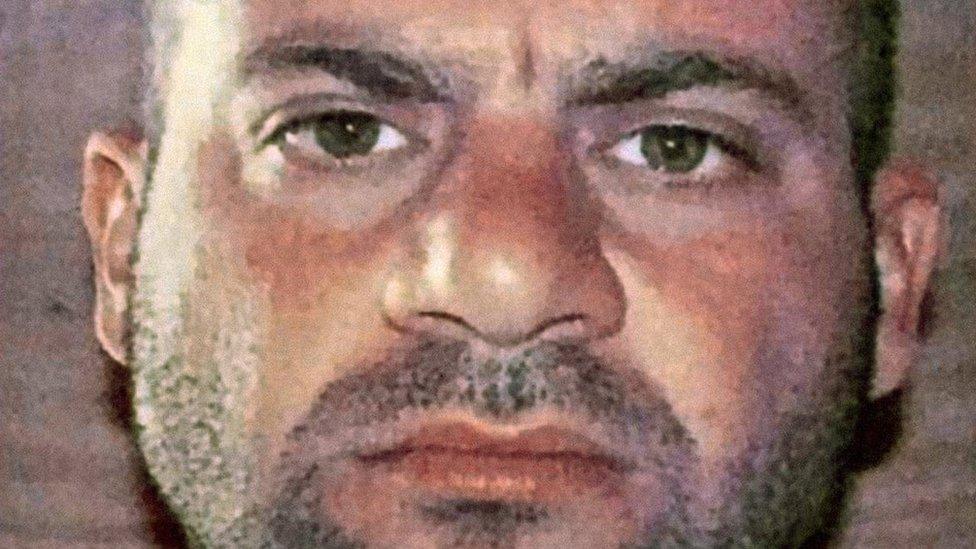IS confirms leader Qurayshi's death and names successor
- Published

Abu Ibrahim al-Qurayshi was a veteran Iraqi jihadist whose real name was Amir Mohammed al-Mawla
The Islamic State (IS) group has named a new leader after confirming the death of Abu Ibrahim al-Qurayshi.
An audio message posted online said Abu al-Hassan al-Hashemi al-Qurayshi was now "caliph", without providing any further details about his identity.
The message did not mention how, where or when Abu Ibrahim al-Qurayshi died.
The US has said the Iraqi jihadist blew himself up, killing his family, during a special forces raid on his hideout in north-western Syria on 3 February.
President Joe Biden said his death "removed a major terrorist threat to the world", accusing him of overseeing the spread of IS affiliates around the world and of being the "driving force" behind the genocide of the Yazidi people.
Thursday's audio message was delivered by a new IS spokesman, Abu Umar al-Muhajir, who revealed that his predecessor Abu Hamza al-Qurayshi had also died recently.
Muhjair said he could not reveal the real name of the new leader, but he urged followers to pledge allegiance to him.
There had been speculation that the most likely candidate was an Iraqi man called Bashar Khattab Ghazal al-Sumaidai, external, also known as Abu Khattab al-Iraqi, Hajji Zaid and Ustath Zaid.
Watch: Footage depicts aftermath of US raid in Syria
IS once held 88,000 sq km (34,000 sq miles) of territory stretching from eastern Iraq to western Syria and imposed its brutal rule on almost eight million people.
The group was driven from its last piece of territory in 2019, but the UN estimates it still has between 6,000 and 10,000 fighters in Syria and Iraq, external who continue to carry out hit-and-run attacks, ambushes and roadside bombings.
Abu Ibrahim al-Qurayshi's death in the opposition-held Syrian province of Idlib came days after a major IS attack on a Kurdish-run prison in the north-eastern Syrian city of Hassakeh - the group's most significant operation in years.
At least 121 guards, Kurdish-led militia fighters and civilians were killed in a week of fierce clashes, alongside 374 IS detainees and attackers, officials said.
Earlier this week, a monitoring group said IS was behind an attack on a military bus in the central Syrian desert that left 15 government soldiers dead.